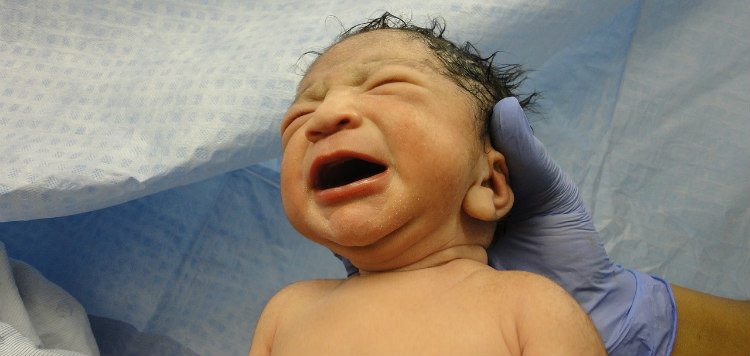Every state has its own body of law on birth injury lawsuits. Some states allow families a number of years to pursue a malpractice claim, while others restrict the available options. And families who are planning to pursue a legal case often have many important questions that center around state law:
- How long does my family have to file suit?
- Does my state limit the amount of damages available in birth injury lawsuits?
Have questions of your own? Call our experienced birth injury attorneys for a free consultation today.
The unique and nuanced laws in place on the state-level have a major impact on every medical malpractice lawsuit. And that's especially true for the questions at issue in a birth injury case.
"Highly Recommended." Words can't express my gratitude.
Medical malpractice laws are maintained on the state, not the federal, level. Existing case law can make a big difference, too. Over the years, judges around the country have set important legal precedents that must be respected in developing a plaintiff's strategy. No state plays by the same set of rules; being aware of these critical laws and precedents is paramount to success.
Medical Negligence: The Basis Of All Birth Injury Cases
The basic underpinnings of a birth injury lawsuit, on the other hand, don't change from state-to-state. In the vast majority of cases, the parents of a child who suffers severe injuries during labor or delivery will file a medical malpractice lawsuit on behalf of their child. While birth injuries have their own unique factors to consider in structuring a legal strategy, these lawsuits are still, at bottom, medical malpractice claims.

As such, the legal theory applicable to these cases, which are heard in civil courts, is negligence. In a malpractice suit, plaintiffs, with the help of their attorney, will be required to prove that their doctor, nurse or hospital failed to provide their child with adequate care.
State Laws On Expert Medical Testimony
Doing so requires the demonstration of two separate things. First, your family will need to explain to the court what adequate care should have looked like under the circumstances. This step is generally accomplished through the help of an independent medical expert. In practice, we're trying to help the court understand what a reasonable, adequately-trained medical professional would have done under the same circumstances - that defines the standard of care.
Many states, in the matter of expert medical witnesses, require that the witness be licensed to practice medicine in the state and adequately qualified in the same specialty as the medical professional being sued. It's rare, if not impossible, for an expert in gastroenterology to provide testimony on the standard of care in a birth injury case, unless the case involves the alleged misconduct of a gastroenterologist.
In practice, states will have their own specific set of guidelines to govern the choice of medical experts, but all jurisdictions share the basic assumption that a medical witness should share the same qualifications as the defendant. In a suit against a nurse, nurses are usually required to testify on the appropriate standard of care. Cases against obstetricians will normally involve independent obstetrician witnesses.
Statutory Restrictions On Malpractice Cases
In recent years, a number of states have attempted to make it more difficult for families and injured patients to file medical malpractice lawsuits. Their efforts apply equally to birth injury cases.
In order to file a lawsuit today, many parents will be required to file a Notice of Intent first, notifying the defendant that they could be called into court and providing the defendant with an opportunity to answer to the family's allegations.
Pre-Trial Screening Panels
An even more-restrictive measure has seen the growth of pre-trial malpractice screening panels. These panels, filled by attorneys, medical professionals and former judges, review malpractice cases before they are filed, then issue an opinion on the facts at issue.
The opinions rendered by malpractice screening panels are rarely binding, but many states allow the findings of these boards to be admitted as evidence in a subsequent trial.
Monetary Damages Caps
Another tactic state legislatures have tried is to institute caps (or maximum limits) on the amount of damages that families and patients can secure in a successful lawsuit. More than half of states now impose a strict limit on non-economic damage awards, which are designed to compensate parents and children for their unquantifiable losses, things like pain, suffering and loss of enjoyment of life.
Why Do State Lawmakers Restrict Malpractice Claims?
All of these statutory schemes are designed to make filing a malpractice claim less-attractive to plaintiffs and filter out "frivolous lawsuits," cases that have no reasonable basis in the law.
Many state lawmakers, especially those to the right of the political spectrum, believe that America is currently facing a crisis of medical malpractice litigation. The evidence on that claim, however, is mixed, as a number of studies contradict the claim that "rampant" malpractice lawsuits are driving doctors' insurance premiums higher.
Whether or not these statutes are justified by the facts, every plaintiff should have a clear overview of their available legal options. State medical malpractice laws are extremely complex. We urge you to reach out to an experienced attorney with an understanding of your own state's laws to evaluate your rights further. Nothing can replace the guidance of a local attorney with a history of success in birth injury suits.



